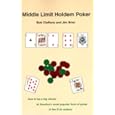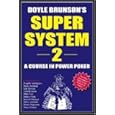Being a professional gambler means you lead a strange and unconventional existence, but I wouldn’t have it any other way. I’ve done the corporate grind and I find it wonderful to not have to such freedom from middle managers trying to make sure I understand the full extent of their limited authority. Still, the day to day existence of a poker player has it’s own interesting trials and tribulations. I think the biggest challenge I face is just keeping my moral up.
Because the game is all about trying to beat eight other people at the table with you, you win most of the time you’re there. In fact, even if all you did was win your fair share of pots, that means you’d only be a “winner” 1/8th of the time or so. I kept track of my daily wins and losses because that’s what we’re supposed to do as good poker players, but I developed a habit that I was just leave the book in the car at the end of the day. Entering a failing day always felt so negative to me that I figured I’d just wait till a big up day, but when that came, I typically didn’t feel like entering all that data either. I just wanted to celebrate in my glow and I feared that entering all of the losses the book contained would just bring me back down again.
As the weeks turned into months, I began to wonder just how bad the data would be when I finally entered it into my spreadsheet. I was sure it would tell me I was a loser at the game of poker, but I wasn’t sure how much of one. Really, since I’m paid by the house, being a loser isn’t such a bad thing. I don’t get to chose my own game as most professionals do, and the game I’m typically sitting in isn’t the one most professionals would chose. Furthermore, at $25 an hour, I can afford to lose, oh $5 or so an hour and still be ahead of most people’s jobs. Let’s face it, $20 an hour to gamble all day isn’t all that rough an existence. So I finally got off my ass and entered the data and discovered… I was actually a winner at the game of poker. I was truly surprised but even with the games I was being put in, I managed to add to, and not subtract from, my hourly rate.
To me this reveals a startling truth about poker: everybody feels like a loser most of the time, even the winners. I now see how people just stop caring if they’re playing correctly over time because they figure they’re just going to lose anyway, so why bother trying to do what’s correct. They allow their previously good and profitable play degenerate over time until they are losing players who have no hopes of anything but a brief flash of temporary good luck.
I remember when I first started learning about poker, Mike Caro lectured that you as a poker player needed to envision that you were being hired by someone else and playing with someone else’s money. That the wins and loses that you were taking were all someone else’s responsibility, and instead that person was paying you a flat rate per hour simply to make the best decisions possible. The point of this exercise is that poker is not about winning pots, but instead about making the correct decision as best you are able. If you simply keep making the best decisions you can, the pots should take care of themselves.
I think Mike is one to something here, because it takes the pressure off of feeling like you have to win everyday. You don’t have any real control over whether you win or loss a given session at poker, but instead need to just focus on making the best decisions you can. “Let success take care of itself,” is what Mike would say.
It feels great to have the data saying that I’m doing something that many people find rather difficult. I feel very secure that I can continue to make a living and provide for my loved ones if I just aim to keep improving everyday. I love my job and I love the influx of new faces everyday. This is a great country, and poker is a great game. To borrow an ending from Jerry Maguire, I love my life, I love my fiance, and, I wish all the rest of you my kind of success.

